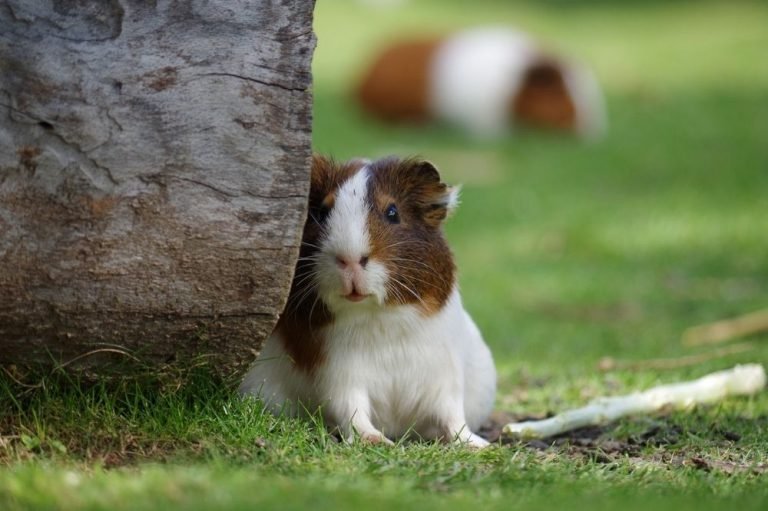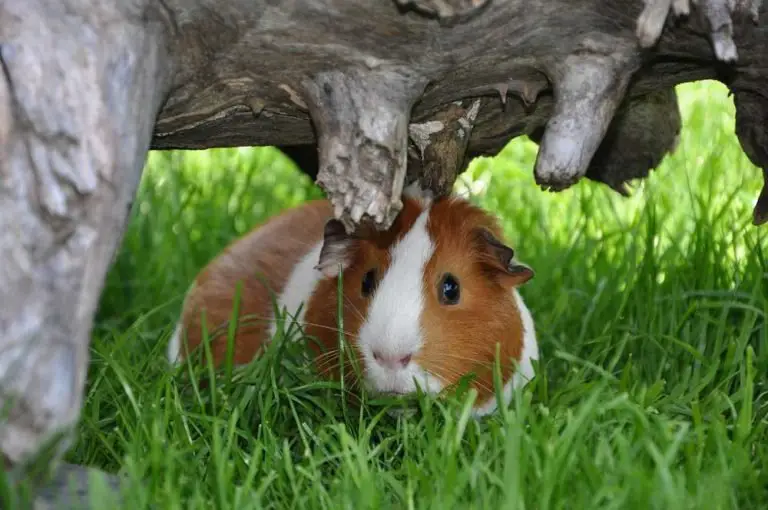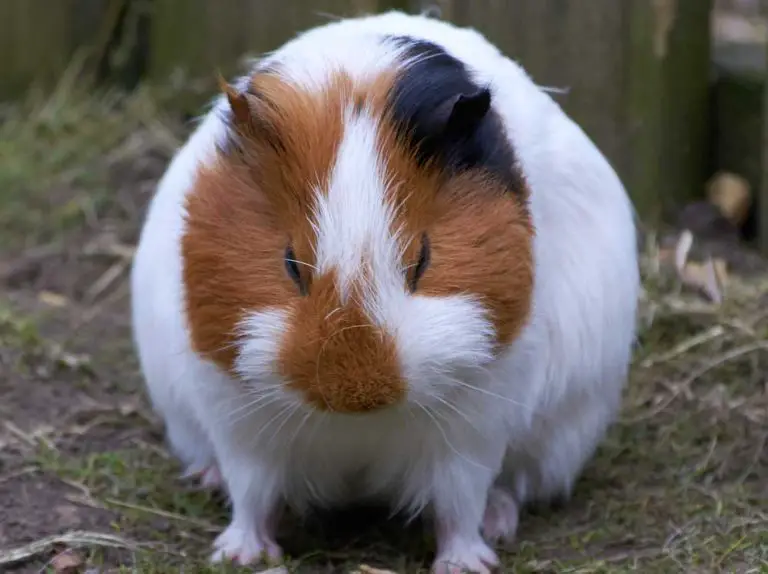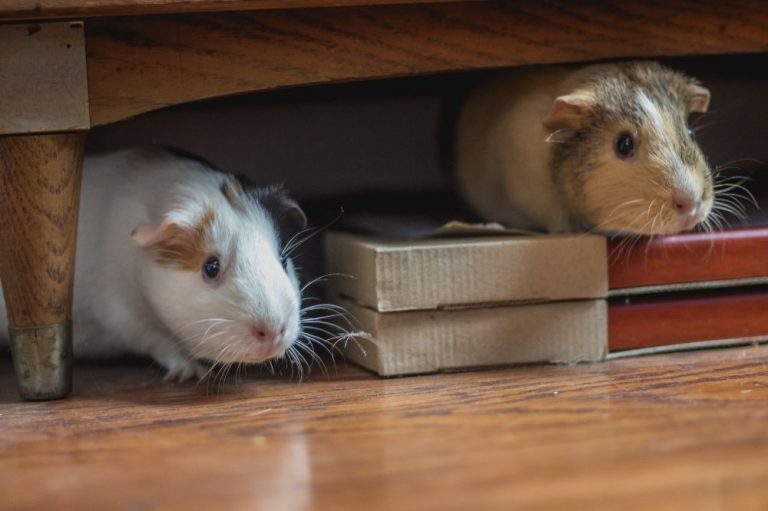Guinea Pig Heart Attack: Causes and Treatment
Guinea pigs are growingly becoming a favorite pet among many families especially those with children. They are playful, gentle, and easy to maintain small animals that are a delight to keep.
Despite this, guinea pigs are susceptible to some illnesses like respiratory infections, diarrhea, scurvy, and malocclusions. They are mainly brought about by living in untidy environments and the kind of food they eat.
As long as you feed them the correct diet, clean their houses often, and exercise them regularly, guinea pigs will be good to go.
However, sometimes you may do everything right but somehow your guinea pig will still manage to go ahead and get sick which can be quite frustrating.
Diseases, for instance, those concerning the heart, may make you wonder what you did wrong for your pet to acquire them. Mostly, it is never your fault so do not kill yourself with guilt.
Read on to find out more as we look into the causes of heart attack, signs and symptoms to watch out for, and the treatments available.
Signs and symptoms of a heart attack in guinea pigs
A heart attack may be hard to diagnose because its signs and symptoms will usually look similar to those of other common guinea pig diseases. It could even be confused with URIs.
If your pet’s heart is beating fast, that’s not a cause for alarm as it’s a normal thing and it should not worry you sick. It becomes a concern if it’s accompanied by other signs like lack of appetite and diarrhea. Then it is necessary to see a vet.
Signs and symptoms of a heart attack in your guinea pig are:
Breathing difficulties
As mentioned, breathing difficulties are associated with Upper Respiratory Infections in guinea pigs. If your pig is having problems while breathing though, it could also be a sign of a heart attack.
If you notice this you should see a vet right away because both these conditions are highly fatal and could cause sudden death.
Lethargy
Guinea pigs are naturally active animals and they will play all day and night long. If you begin noticing that your pet is showing signs of being lethargic, you should pay some more attention to them.
Loss of energy and minimal movements could mean that something is wrong with their heart.
Teeth problems
Teeth problems are common in guinea pigs. They have teeth that will keep growing all their lives.
If the teeth are not worn out, they become painfully overgrown leading to eating problems. Malocclusion can be accompanied by a heart attack too.
As heart attacks bring about breathing problems, this will make your pet unable to eat. When guinea pigs stop eating, tooth overgrowth happens.
Coughing and wheezing
The above signs and a cough or wheezing sound may also signify a heart attack. Do take your pet to a vet right away.
Causes of a heart attack in guinea pigs
Heart attack in guinea pigs may be brought about by factors like:
Unknown causes
Generally, the cause of heart attacks in guinea pigs is unknown. Your pet may suddenly experience it with no warning signs.
This could lead to untimely fatalities whose cause is not known.
Genetics
Just like some human diseases, genetics may contribute to a heart attack in guinea pigs. This means that if a guinea pig suffers a heart attack, their relations are more likely to suffer from the same.

However, the species that are most susceptible to a heart attack is not known.
Obesity
Obesity will bring about heart problems in humans too. Heart attacks are more common in obese guinea pigs.
If obese, they will require more blood to move oxygen and nutrients around their bodies. This leads to an increase in blood pressure.
Blood pressure is a big cause of heart attack.
Age
Guinea pigs can live up to 8 years of age. As they get older though, they become less active and more susceptible to diseases.
Older guinea pigs are more likely to suffer from heart attacks compared to younger ones because they will have fewer movements, fewer exercises, and could easily be obese.
Treatment of heart attack in guinea pigs
Although the symptoms may be hard to notice at the beginning, if you start seeing something unusual with your pet, you should see a vet. After all the necessary evaluations, the correct treatment will be prescribed.
Evaluations may include:
- Listening to the heart – a vet will use a stethoscope to listen for a murmur. Not all guinea pigs will have a heart murmur so they may also take an x-ray.
- X-ray – x-rays show if the heart is enlarged or if there is fluid in the body. However, fluid in the lungs could also be a sign of pneumonia.
- Blood tests – blood tests reveal if there’s an issue with the kidneys. Sometimes kidney problems may bring about heart problems because if the kidney is not functioning properly, the heart becomes overworked.
After all the evaluations are done, a vet will be able to know what the exact problem is and the correct treatment to give.
In case of severe cases, like if your pet is unable to breathe properly, they may be put in oxygen support until they are stable and their bodies are strong enough for medication.
Medication like diuretics will be administered and the right dosage prescribed. There are some naturally occurring diuretics that you can include in your pet’s diet too.
These include parsley and dandelions. You should confirm with the vet first if it’s okay to feed them.
Conclusion
Heart attacks in guinea pigs may be hard to notice because their signs and symptoms resemble those of other conditions.
Signs will include breathing difficulties, lethargy, malocclusions, and a cough or wheezing. A heart attack may be brought about by old age, genetics, obesity, or unknown causes.
A vet will do the required evaluations and give the rightful medication for the condition.
- Can Guinea Pigs Eat Lawn Grass? Find out now!
- Can Guinea Pigs Eat Wet Grass? Find out now!
- Can Guinea Pigs Eat Weeds? Explained
- Can Guinea Pigs Eat Watermelon? (Benefits & Risks)
- Can Guinea Pigs Eat Strawberries? [Feeding Guide!]







